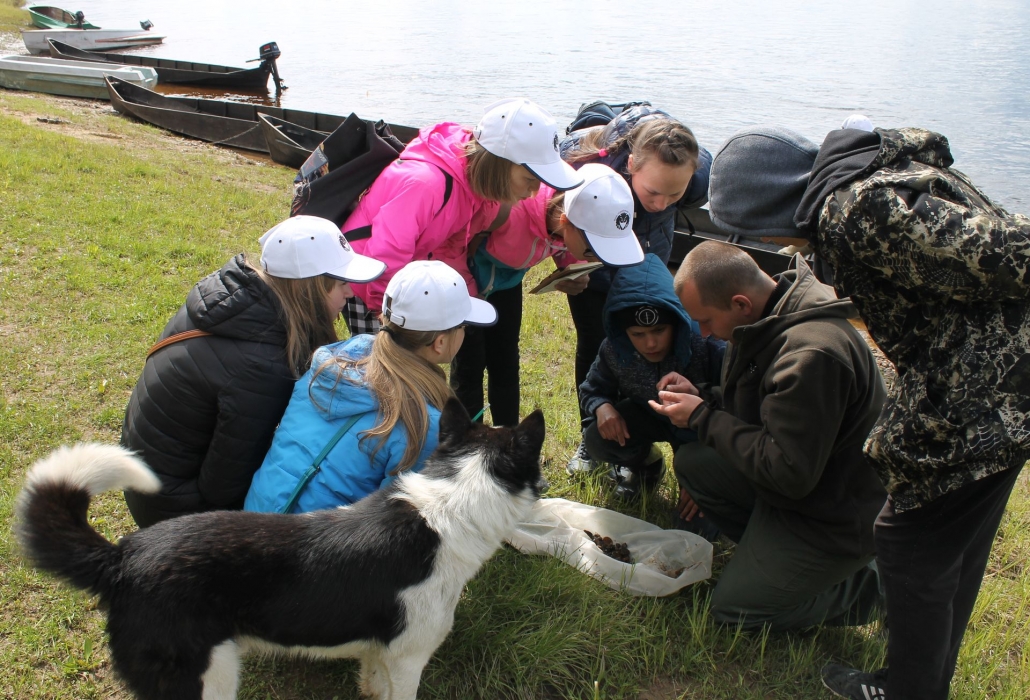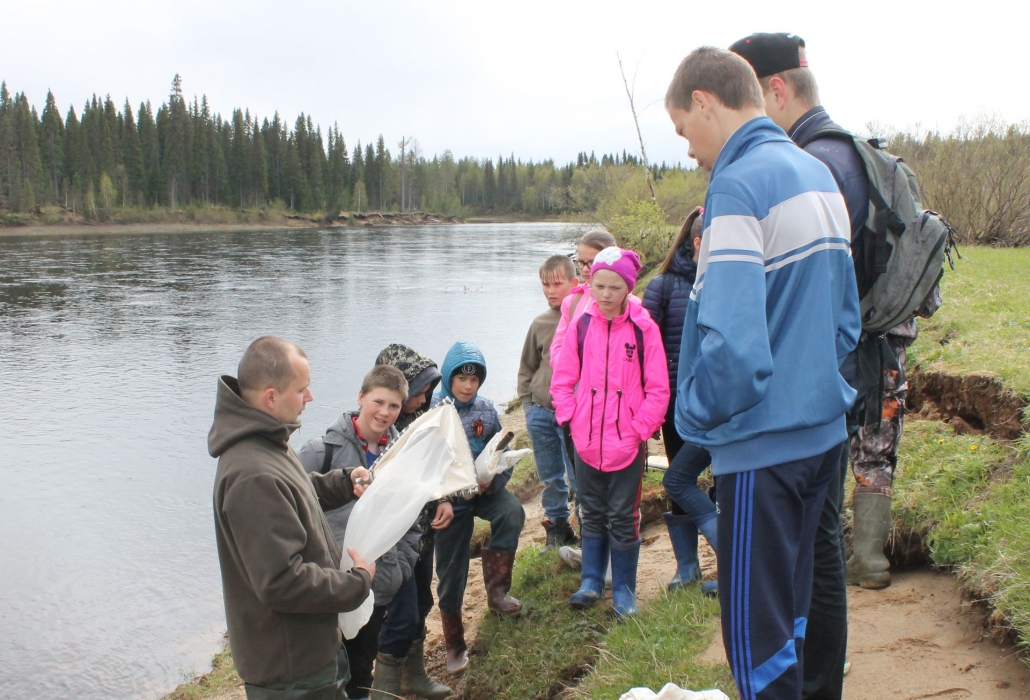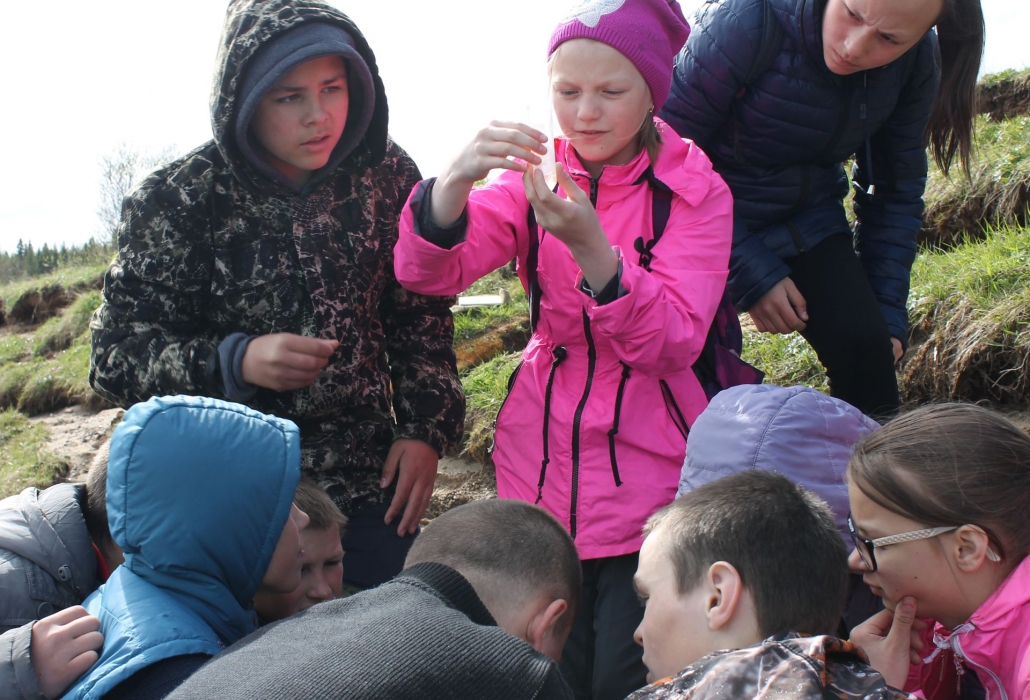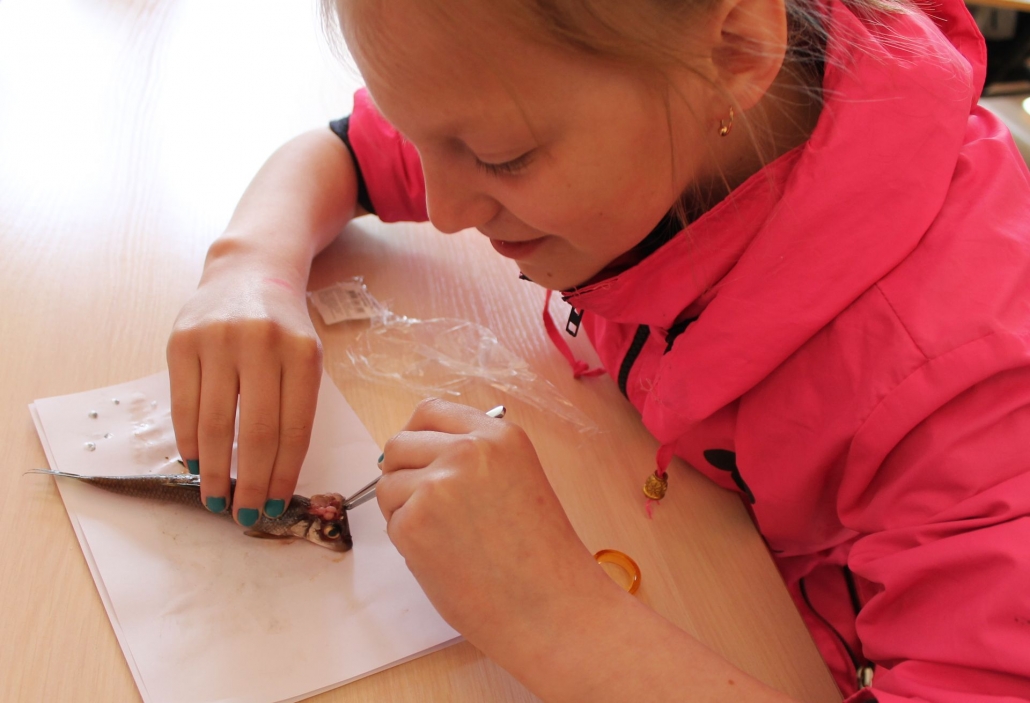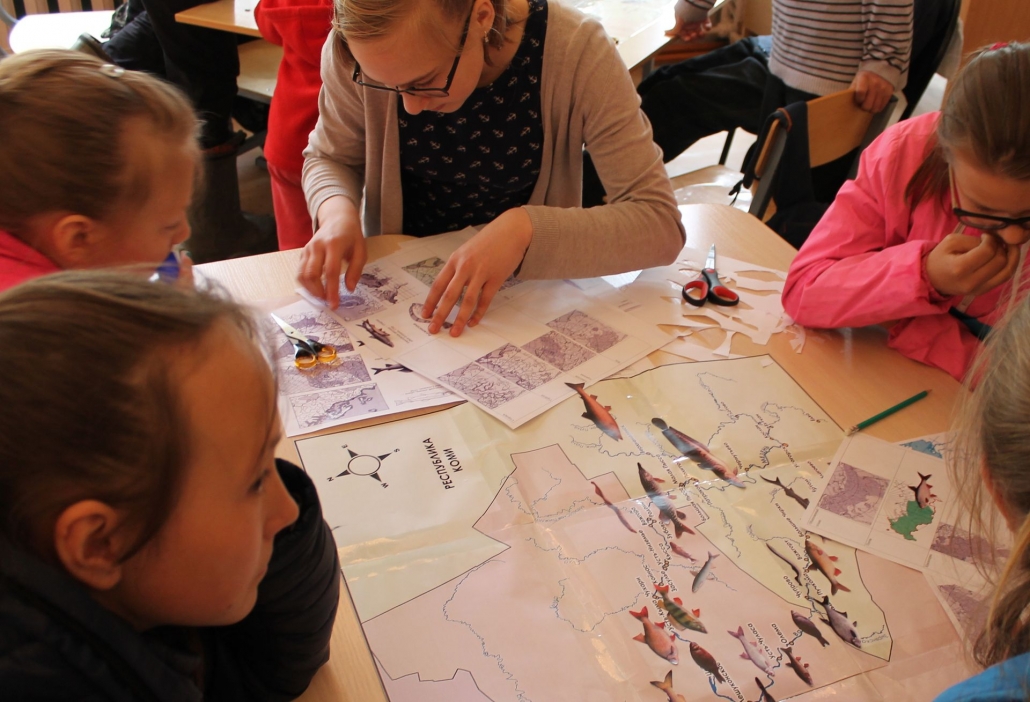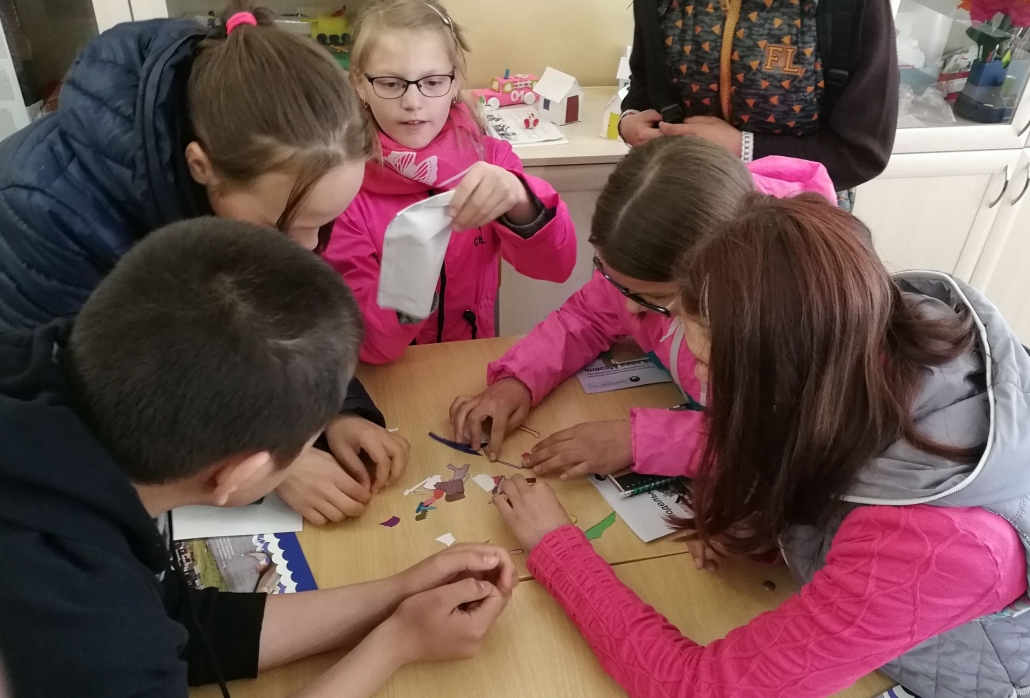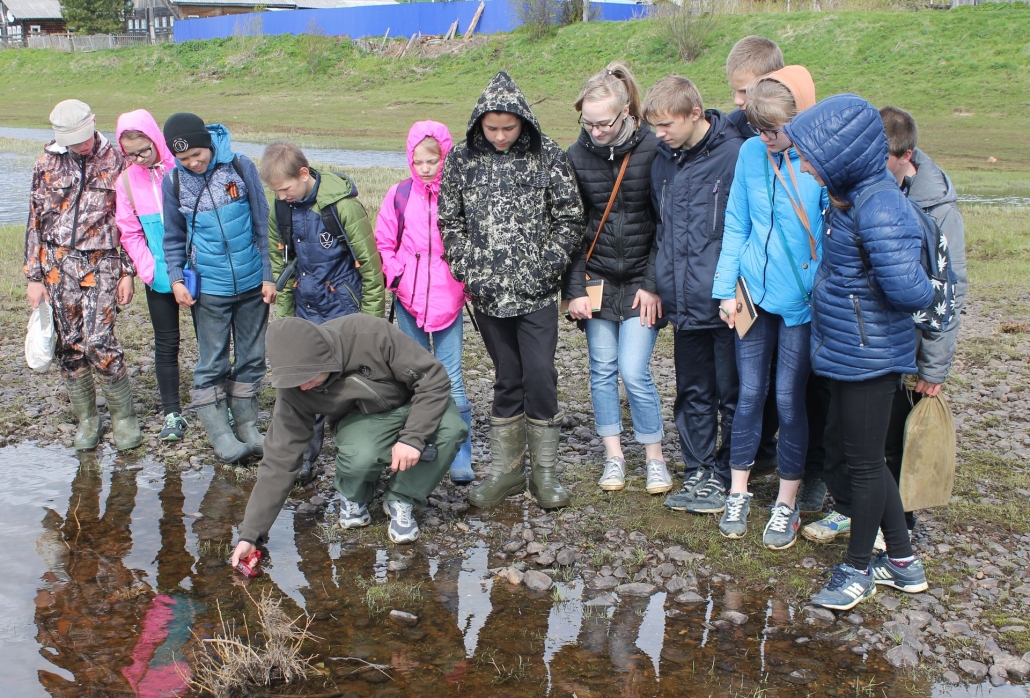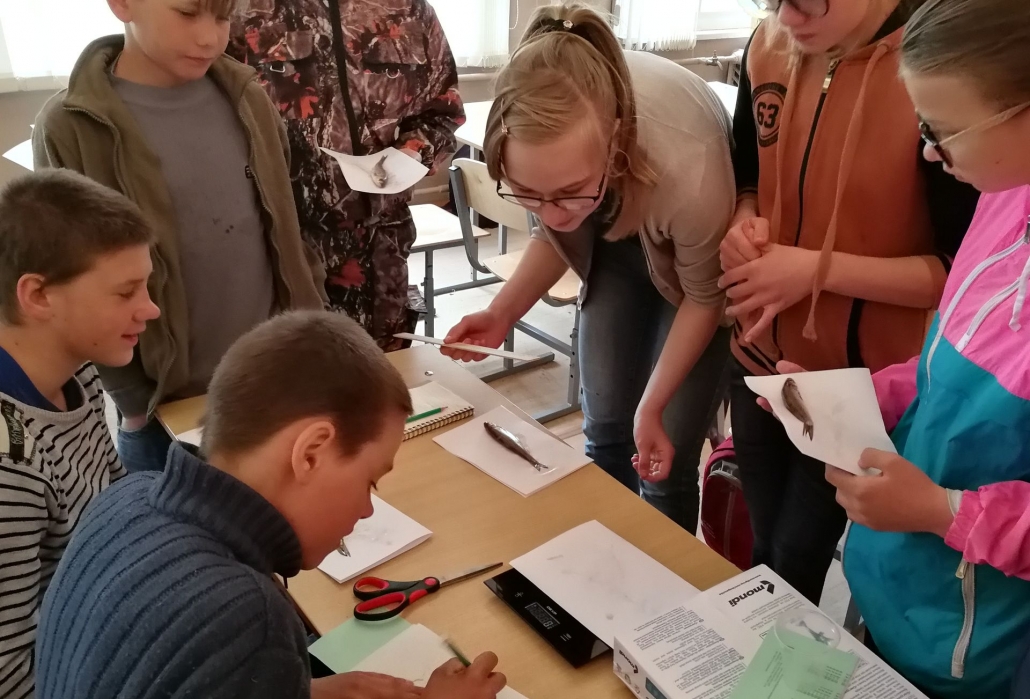SCHOOLCHILDREN FROM VOZHGORA, ARKHANGELSK REGION, STUDIED PRINCIPLES OF HYDROBIOLOGY
The Silver Taiga Foundation for Sustainable Development has arranged the ichthyology school for the fourth year in a row. In previous years the school trained Udora and Syktyvkar schoolchildren, but this year the session has been organized in the adjacent Arkhangelsk region, in the village of Vozhgora, as part of the Model River Mezen project. (The Mezen flows along the two regions – the Republic of Komi and Arkhangelsk region, therefore the project is interregional).
There are hardly any hydrobiology experts in both Arkhangelsk region and the Komi Republic. That is why the Model River Mezen project coordinator Nikolay Shilov’s idea to arrange an ichthyology school for kids of Vozhgora was taken enthusiastically by Natalya Posmashnaya, director of the local secondary school. The school administration created all conditions necessary for the ichthyology school from Komi – collected groups of students, provided classrooms, multimedia and laboratory equipment, arranged catering for the children.
The children from Vozhgora and other nearby settlements examined the Mezen ichthyofauna on June 5-9. They studied the principles of hydrobiology, origin, anatomy, morphology and physiology of fish species inhabiting the Mezen. The lectures were followed by field workshops and vice versa. The students even asked their parents to help them catch fish to dissect it later and to define the species of different specimen.
“Children are surprisingly fast to learn the research methodology. At the second lesson they did everything on their own accurately reproducing the algorithm of actions. They turned out to be quick learners of such a difficult topic as organ topography. We were happy to hear from every tenth of them at the end of the course that they were going to become ichthyologists later. To conclude the program, all students were presented with memory sticks with special data on them that can help the children to improve their hydrobiology skills,” Nikolay Shilov, the Model River Mezen project coordinator, said.
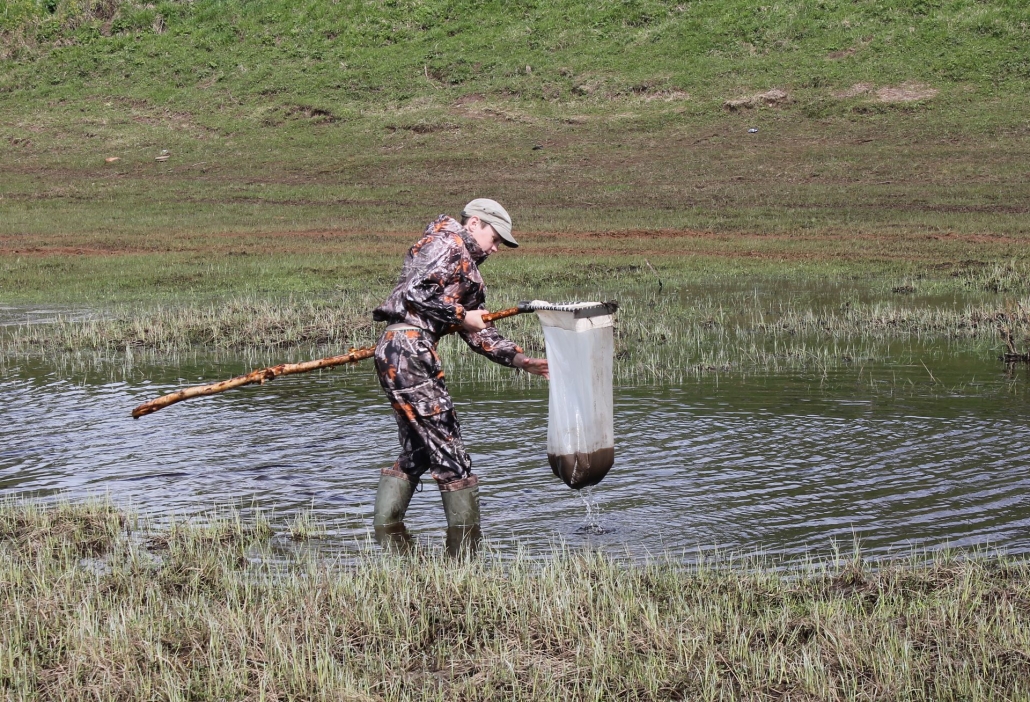
The children were surprisingly fast to learn the research methodology; they did everything on their own
But the most interesting fact, according to Mr. Shilov, is that the schoolchildren do care about the current state of valuable fish populations, for example, of salmon population. The kids were concerned about this topic, they asked plenty of questions. During the research they found some difference in the species composition in the river flowing in Komi from the same in the Arkhangelsk region. For instance, the Arkhangelsk part of the river has more humpback salmon which comes to the river from the sea, and there is much more flounder. While from the upper reaches of the river, from the Komi Republic part of it, bearded stone loach enters the water basin.
However, the kids studied more than just hydrobiology. They got really interested in the history of fishery industry development on the Mezen starting from the Tzar’s orders dating the 18th century and all the way till now. The children also liked the lecture on fish breeding, artificial fish stocking, its advantages and disadvantages.
As requested by teachers of the Vozhgora secondary school, Nikolay Shilov conducted a public lecture on the Mezen ichthyofauna, with 70 people – both adults and children – attending it.

